The Saahas Zero Waste model comes from Bangalore, India’s technological capital. It concentrates on partnerships with large companies, Extended Producer Responsibility and recycling to formalize waste management in Indian metropolises while guaranteeing better working conditions for sector employees.
A city that has seen its population double in a little over 15 years is inevitably encumbered with a waste management problem which is all the more difficult to manage if such growth occurs uncontrollably in a city that was not meant to host so many people from neighbouring villages and surrounding countryside. This is what is happening in Bangalore, officially Bengaluru, capital of the Indian State Karnataka, also known as India’s Silicon Valley. Here, the population exploded from 6,769,000 inhabitants of 2005 to almost 11 million in 2017.
Today, Bangalore is a huge building site, new high rises are being built every day, works for the extension of the underground drag on day and night and the adoption of Western lifestyles is slowly taking root with the images of the latest smartphone models and the sparkling saris worn by models on the huge billboards dotted around the city.
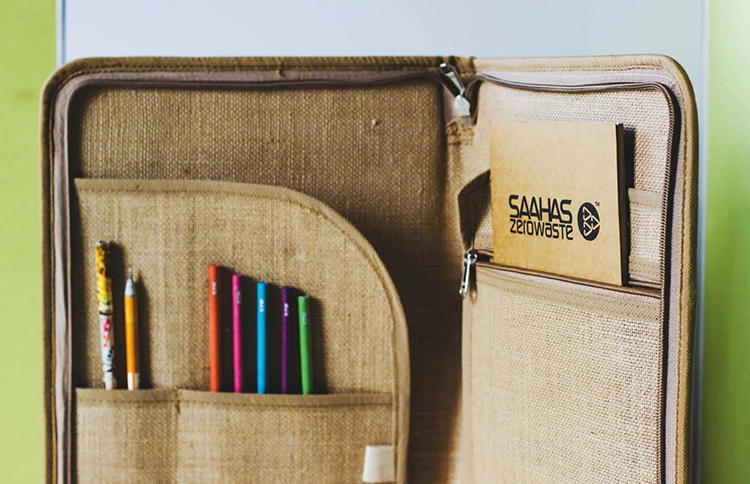
Precisely here in Bangalore, in 2001, the non-profit organization Saahas was born from an idea of Wilma Rodriguez. The founder is a former tourist guide appalled by the growing problem of incorrect waste management. Refuse is scattered around every corner of the city centre and the suburbs, spoiling Indian landscapes. The year is no coincidence. During the previous year, in 2000, for the first time in India a national policy on waste was put in place. The approved law on waste is the spark that gave Rodriguez the idea to create an association dealing with raising awareness within the public on pollution issues and to create pilot projects on corporate social responsibility and environmental education. In 2013, alongside the non-profit association, the social enterprise Saahas Zero Waste was born.
Since then, Saahas Zero Waste has focused on waste collection in the private sector. It developed its own business model, signed agreements and offered customized solutions to private companies, in particular to large waste generators such as office buildings and technological companies. In order to do business, Saahas needs an empanelment by the municipality of Bangalore. After that, wherever large amounts of waste is produced, in the back of the office of large companies such as, Microsoft, General Electric, Shell Saahas Zero Waste puts in place an end-to-end decentralized model of waste collection and separation. The service allows also Saahas Zero Waste to collect data on waste produced that are shared with companies on a monthly basis to facilitate reduction and better segregation of waste generated. All the biodegradable waste is composted on-site to produce good quality organic manure. The non-biodegradable waste is sent to a Material Recovery Facility for further sorting into 15-20 categories before it is baled and sent to respective authorized recyclers. The activity of the Bangalore’s business represents a huge step forward in a country where informal waste recycling up until now has never allowed data collection on waste so as to asses its status quo.
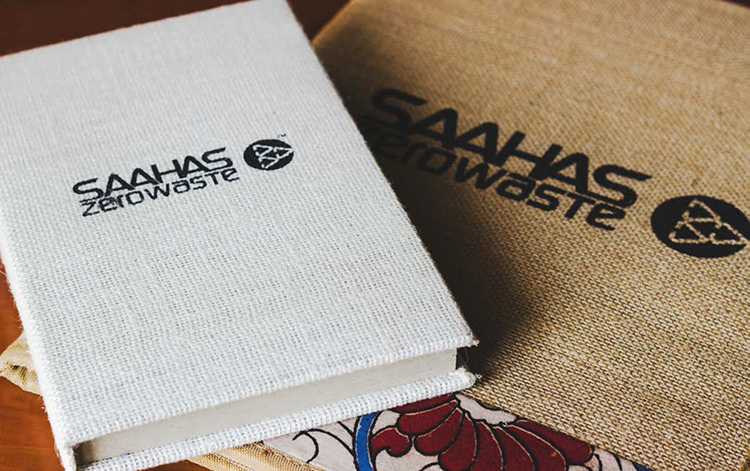
Today, Saahas Zero Waste manages over 30 tonnes of waste per day, with the ambitious goal of reaching 300 tonnes per day by 2021.
Alongside waste recycling, the company has also started a line of recycled and upcycled products including books, toilet paper, copybooks, pens but also pen holders, chairs, writing desks and shelves. Upcycled products in particular are obtained from Tetra Pak carton recycling with no glue added, simply using heat as a sealant.
The choice to focus on stationery and furniture production allows the manufactured objects to be used in Indian schools and to raise awareness and educate new generations to assess the positive impact of correct waste management.
Unlike informal waste collection where final destinations of materials are unknown and low-value waste is burnt or landfilled, Saahas Zero Waste endorses recognized and formal collection, known recycling partners and channelize low grade waste to cement kilns for co-processing.
Legal framework
In 2016 India adopted a law on waste management providing for waste separation in six different categories: solid waste, hazardous waste and of other kind, construction and demolition waste, electronic waste, plastic and biomedical waste. Also, according to the new law, the responsibility of setting up reverse logistics for post consumer waste collection is the producers’ (see interview with Vishal Kumar). Packaging producers, in particular, must equip themselves with a collection system. Last, source waste separation is mandatory.
Saahas Zero Waste’s model – which after Bangalore was also adopted in Chennai, a 7 million inhabitants city – aims at reaching Delhi and Mumbai, two metropolises with almost 50 million inhabitants combined.
With total Indian population exceeding one billion and three hundred million, by far higher than the inhabitants of Europe and the United States together, working on a zero waste India is crucial both for the country and the entire planet.
Saahas Zero Waste, saahaszerowaste.com
Images ©Saahas Zero Waste
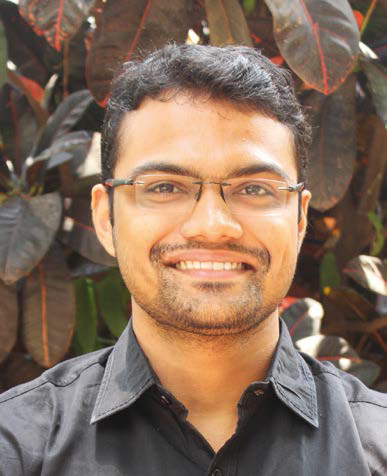
Interview with Vishal Kumar, E-Waste Programme Manager at Saahas Zero Waste
by A. I. T.
That’s How we Help Companies Manage Waste
Alongside the Zero Waste Programme carried out on-site for the bulk waste generators, Saahas Zero Waste has started for a few years now, even before the 2016 law, the EPR programme – Extended Producer Responsibility. How difficult is it to collaborate with companies when talking about waste and responsibility of material management?
“There is room for a strong impact with both programmes: extending producer responsibility with regard to materials, I believe, is very important. Zero Waste Program is our flagship vertical by which we promote decentralized waste management and segregation at source. EPR has a huge potential to improve waste recycling in India. We set up the entire reverse logistics mechanisms of collection, segregation and aggregation before channelizing to authorized recycling partners. The producers pay us a service fee for covering the cost of operations to comply with the EPR regulations called out in the 2016 Rules.
“We have set up pilot projects with producers of multi-layered packaging to collect large volumes of this non-recyclable material and channelize it to cement kilns for co-processing. Over the last few months, we have been able to scale up these projects from collecting 15 tons per month to over 300 tons per month.”
Does Extended Producer Responsibility include electronic goods in India?
“Yes, in India there has been a law about e-waste since 2011 which was modified in 2016 to include stipulated collection targets. Saahas Zero Waste also collects end-of-life E-Waste on behalf of the producers and channelize the same to the State Pollution Control Board authorized e-waste recyclers. The Central Pollution Control Board is the Indian institution overseeing correct implementation of the law with regard to e-waste. Recycling electronic waste is a really complex subject. Informal recycling channels would pay us up to ten times more than formal ones, but they are not authorized, do not comply with labour laws and do not have the appropriate technology to handle the hazardous chemical present in electronics, so we avoid them.”
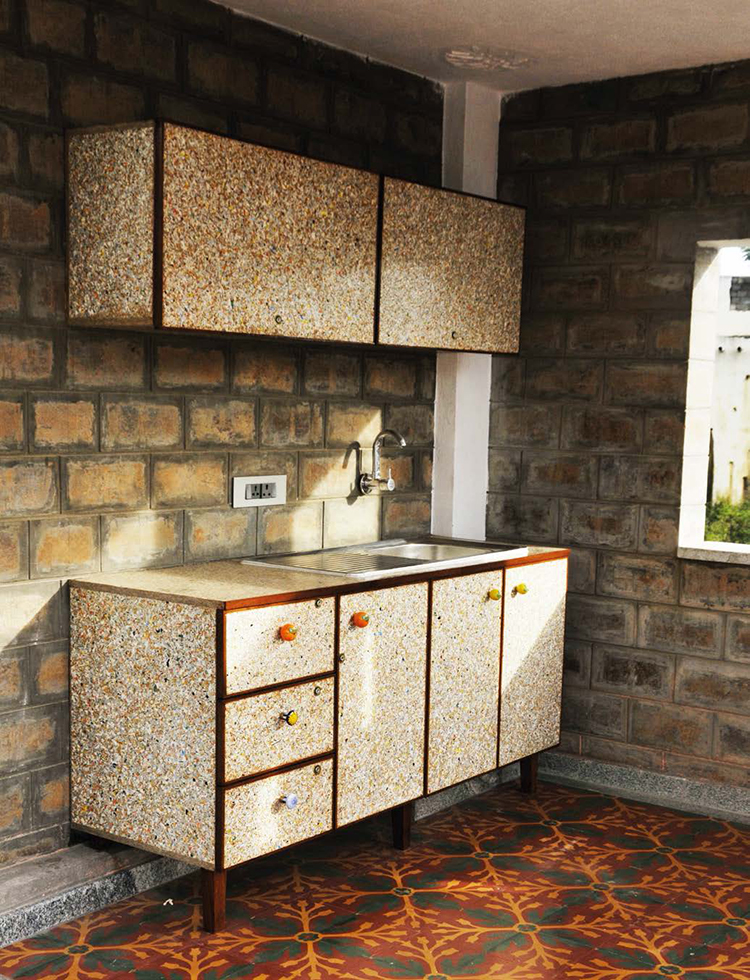
How popular is informal recycling in India?
“Very much so. Recycling rates in India are extremely high, much more than one could imagine. The problem is that most of this recycling occurs thanks to the informal sector, which is difficult to monitor and brings along problems such as child labour and poor security for those collecting recyclable or reusable components from landfills. Everything that has a value – from electronic to medical devices, to copper and plastic – is informally collected and sent to informal recyclers. The problem is multifaceted because in theory the individual collecting materials is doing well in that he/she avoids them being burnt or scattered along water bodies. However, those collecting waste informally do so with no protection, with no shoes or suitable gloves, with a high risk of getting diseases and being paid little money, despite working between 15 to 20 hours a day. The informal sector manages to be extremely profitable for managers also because they don’t pay minimum wages and dump/burn all the low grade waste materials instead of handling them safely.”
As Saahas Zero Waste, what do you do to combat informal recycling?
“We are striving to formalize the informal sector. In our staff we have around two hundred full-time people in the field who sort waste in the appropriate recycle channels. They receive protective equipment, uniforms, provident funds, insurance, beyond minimum wage and they work between 9 to 5 with a lot of dignity. They are employed by us and are a huge cost, but this allows us to solve the waste problem even from a social point of view, it is part of our mission. We want to show that it is an economically viable model. Showing that the model is working for the environment, the people and the economy is a daily challenge.”
Can regeneration of electronic devices be a better solution than recycling, for example?
“Regeneration too is very popular in India with a rate of around 80%. Suffice it to think that a phone has, on average, three or four lifecycles, i.e. three or four owners. The first owner sells his/her own phone to informal channels where it is reconditioned and resold. Two or three years later the same phone comes back, it is reconditioned and repurchased and so on for other cycles. Eventually, when it can no longer be used, the components still working and of some value are extracted. In this phase, for instance, gold is extracted from the motherboard in the informal sector, it is molten with acids releasing toxic and chemical substances into the environment and water that further pollute and complicate the situation.”
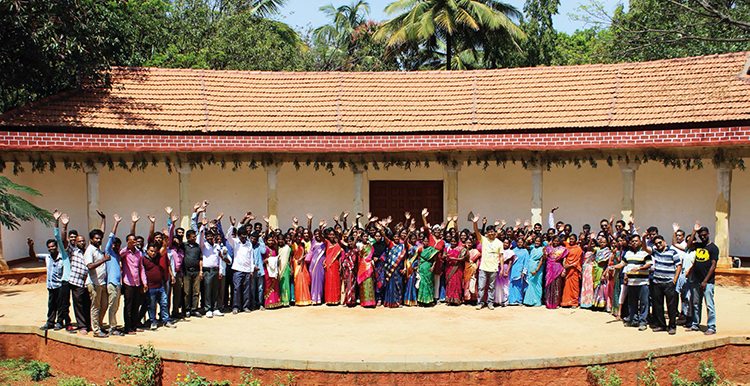
It seems as if the informal sector acted as a hindrance against correct and secure recycling of waste in India. What do you think of the law passed in 2016?
“Informal channels, despite being banned by law, are really difficult to monitor. Working in the formal sector is very expensive, while there are no strong disincentives to informal channels. The 2016 law on waste – regulating six types of it – is a huge step forward in its management. It is a rather progressive law, but its implementation is very slow and truly gradual. Informal sector cannot be overhauled completely as many livelihoods are associated with it. What is required is setting up of systems where the informal sector is integrated into the collection system and the recycling is incentivized for the formal authorized recyclers with strong monitoring and compliance from the Pollution Control Boards. At the end of the day, it is now the Producers responsibility to set up collection and recycling systems in place. Only time will tell how well these policies get implemented.”



